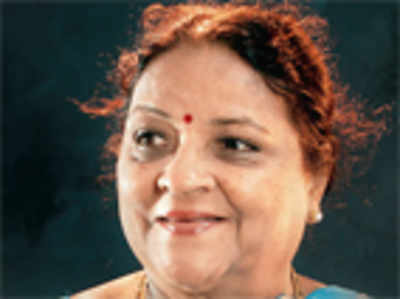Serving Kannada first and foremost

The government has appointed heads for several academies, which had been headless for over four years. Prof Malati Pattanashetty has been appointed the chairperson of Karnataka
Congratulations. What was your first reaction upon hearing of the appointment? Thank you. I was very happy. You could say it was an old dream fulfilled. Sahitya Academy is a prestigious body and it is an honour to be chosen to head it.
On several occasions you have expressed your concerns about the sad state of affairs of Kannada culture world. How do you feel now? Notwithstanding all the shortcomings, I am optimistic. The number of youngsters taking to writing has increased. We hear that the younger generation is not reading classic works and is lured by instant publicity; we need to guide them. After all, any cultural space consists of both the old and new.
How can that be done? We have to provide opportunities for youngsters to showcase their talent. I am planning to revive the Youth Sammelana started by prof GS Shivarudrappa. Young writers need support systems.
Any other specific plans? I want to consult writers and draw up a blueprint for tackling the issues bogging down the Kannada literary world. I want to publish books about the life and works of women writers. There are some unfinished works that my predecessors took up, like computerisation. I want to complete them.
But Sahitya Academy is not a publishing concern… When Baragur Ramachandrappa was the president of Academy, he brought out one series on sub-culture. Before that Giraddi Govindaraj brought out collections of 100 years of writing in different categories. I can plan how we need to validate those who are ignored by mainstream critics.
Currently, caste and groupism are playing big roles in literary circles. How do you plan to tackle this? I want to invite the concerned groups and facilitate a mutual debate. Writers are supposed to be an enlightened community, but when they resort to cheap politics, somebody has to take the initiative to create awareness.
Do you think your selection had an element of gender politics because there are seniors who deserve this honour? I am not aware of any politics surrounding my selection. I am aware that there are many who deserve the post but do not feel I am undeserving. I have had experience of heading the North Karnataka Women Writers’ Forum for two consecutive terms and the works I have accomplished are proof of my capabilities. I brought several writers to the forefront; they were sidelined till then. Women writers lack guidance and their problems with book publishing and marketing seem eternal. We need to address such issues. In a happening language like Kannada there are bound to be other alternative candidates to prestigious posts. Now that I have been chosen, I should focus on doing good work, that’s all.
Any apprehensions? Not really, but for the people of north Karnataka the Bangalore culture is alien. I have to take them into confidence and work along with them. One has to go beyond the problem and be honest. I think it will help. I have all the necessary support. So that should carry me through.
GALLERIES View more photos





















